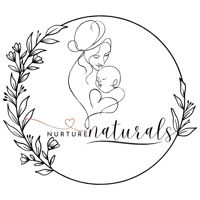FAQs
Frequently Asked Questions about Placenta Encapsulation


Are there any risks associated with placenta encapsulation?
As of now, there is a lack of evidence-based scientific studies examining the risks associated with encapsulated placenta consumption. Women who have participated in this practice have reported a range of adverse reactions. Some experienced issues with milk production, either leading to engorgement or a diminished supply. Others described sensations of overstimulation, similar to the effects of consuming too much caffeine. It is important to acknowledge that individual reactions can vary significantly; what one person experiences may not be the same for another. If any adverse reactions occur while taking encapsulated placenta, it is advisable to discontinue its use.
What if I have GBS?
To ensure the highest safety standards when preparing your placenta, it is crucial to follow established protocols that minimize health risks. Research indicates that Group B Streptococcus (GBS) is sensitive to moist heat at 131 degrees Fahrenheit for 30 minutes. Thus, steaming the placenta prior to the dehydration process effectively reduces the presence of GBS and other harmful bacteria. After steaming, the placenta is subjected to dry heat at 160 degrees Fahrenheit for a minimum of 18-24 hours, further eliminating potential pathogens. Regardless of your GBS status, I adhere to this procedure to ensure the utmost safety of my products. Your health is my top priority, and I remain committed to following rigorous safe handling protocols throughout the entire process.
How much does encapsulation cost?
$300
This includes pickup and delivery within a 35 mile radius of Janesville. Additional travel costs may vary if outside radius.
If you are a current client of Linda Bentz, CPM, LM you will receive a $50 discount.
Payments will be received upon delivery of your placenta via cash or check.
What if I have HIV or STDs?
If you are aware of any sexually transmitted diseases (STDs) or HIV, it is highly recommended that you refrain from having your placenta encapsulated. This precaution is essential for your health and safety, as well as for the integrity of the encapsulation process. I must prioritize the well-being of all clients, and therefore, if there is any possibility of transmission, I will not be able to provide my placenta encapsulation services. It is crucial to discuss all health concerns openly and honestly prior to proceeding with such procedures to ensure a safe and positive experience. Your health is paramount, and making informed decisions is key to maintaining overall well-being.
How can I contact you?
You can inquire on the contact page.
What are other contraindications for encapsulation?
Pregnancy involves various health considerations, particularly regarding the safety of the placenta and its safety for encapsulation. Infections such as chorioamnionitis can pose risks, as can behaviors like smoking, drinking, or drug use during pregnancy. If you have experienced any of these during pregnancy then it would not be safe to encapsulate your placenta.
Additionally, proper handling of the placenta is crucial; it should be refrigerated or kept on ice within two hours after delivery. If it is not, then it should not be encapsulated.
If your obstetrician has advised that the placenta be sent for pathology testing, encapsulation is not recommended. Should you decide to keep your placenta despite this professional advice, please inform me so I can properly assess your placenta to ensure it is safe for encapsulation.
Nurture Naturals
© 2024. All rights reserved.


Phone number: 608-415-9231
Placenta Encapsulation, serving the Janesville, Wisconsin area
Embrace natural care and beauty for mothers.
